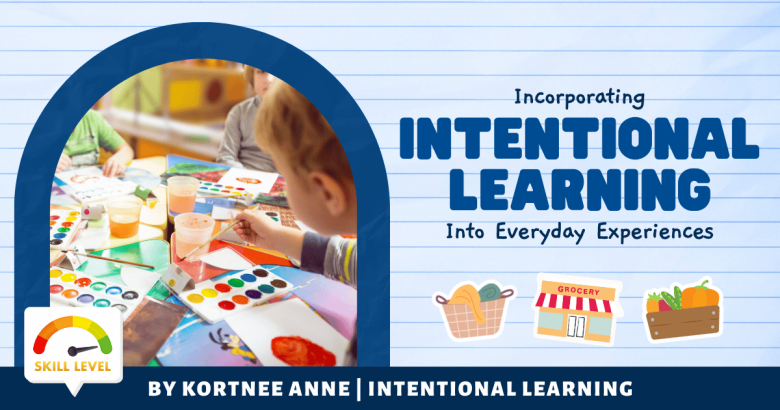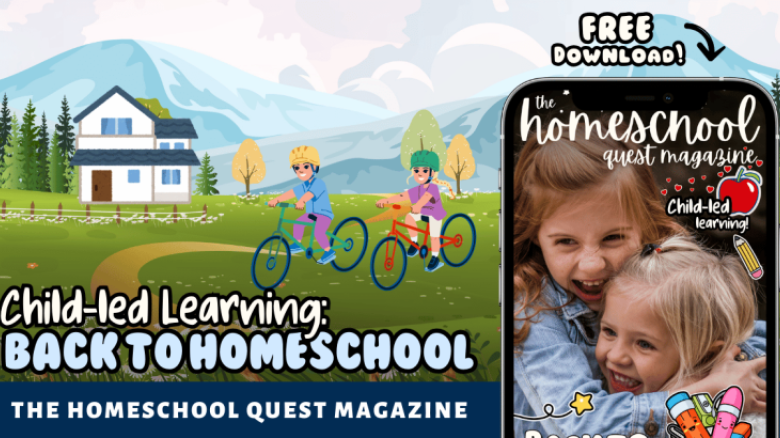By Kortnee Anne Of Intentional Learning
Are you guilty of trying to find the perfect curriculum and spending hours brainstorming the best ideas for your homeschool? If you answered yes, please keep reading.
When we started our homeschool journey, I found myself wanting to find an all-inclusive curriculum that was perfect. As a former teacher it took some time for me to realize that if we wanted our child to have a public-school experience then we would be sending her to a public school.
This realization reminded me that children learn best through play and our daughter learns as we live our normal everyday life. Incorporating intentional learning into our everyday experience is our goal for our homeschool.
Intentional learning is when you know your child needs to learn a specific skill such as reading, and you incorporate ways to read things within your everyday life instead of getting out worksheets.
We often look for letters as we drive down the road as well as words that our children know to help them learn to recognize letters and words in our everyday life. I know this can seem challenging, but it can be rather easy when you take a moment to intentionally plan those experiences. Over time it will become a natural way of thinking.
Here are 5 of my favorite ways to incorporate Intentional Learning into your day:
1. Scavenger Hunts
I often create scavenger hunts for the many markets, zoos, parks, hikes, and other events we attend to help our daughter be more aware of her surroundings while learning to be observant, be responsible, pronounce and read new vocabulary, and stay engaged in our activity.
2. Grocery Shopping
When we go grocery shopping, I often ask our child to help me count items, locate items, and bag our groceries. This helps her learn math skills, social skills, and life skills that will help her become successful.
3. Teaching Responsibility
We teach responsibility by having our child make her own bed as well as wash and dry her own laundry. During this activity she is working on gross and fine motor development as well as learning to take care of herself.
4. Asking Questions
I often ask our child “Why do you think that is?” Or “Why do you feel that way?” This usually leads us to looking for answers and understanding complex ideas. Example:
Child: “Mommy, I need a fork.”
Mom: “Why do you need a fork?”
Child: “I need a fork to help me hold my bread because it is hot.”
Mom: “That is a great reason to get a fork. Please go get yourself a fork.”
It would have been so easy to tell her no. Instead, I chose to ask why, which teaches her to explain herself clearly with confidence; a skill that will serve her well.
5. Cooking Skills
We cook most of our meals at home, so we often allow our children to assist. Our children help us gather necessary ingredients, crack eggs, and scramble eggs with minimal assistance.
We began including our daughter in meal preparation as soon as she could stand unassisted and at 4 she is very confident when pouring, mixing, cracking eggs, etc.
Cooking is a life skill that teaches children responsibility, survival skills, helps improve fine and gross motor skills, and more.
Incorporating this type of learning into our everyday life has greatly improved the educational value our children receive daily in our home, and we hope it inspires your family to make learning fun.
Read More!
- Log in to post comments


